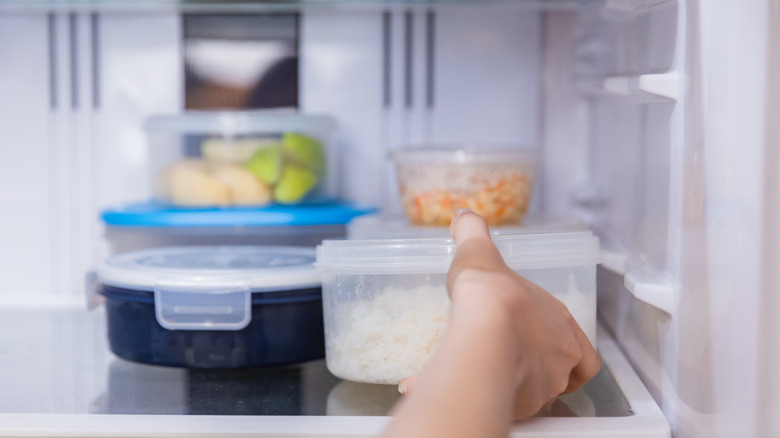The Dangerous Mistake To Avoid When Checking How Fresh Food Is
If you've ever smelled spoiled milk, you know it's possible for a food or drink's aroma to quickly tell you that it's gone bad. But while the sniff test may work in some cases, it can also be deceiving. According to the Centers for Disease Control and Prevention (CDC), "you can't taste, smell, or see the germs that cause food poisoning." Relying solely on your nose or tastebuds to determine if a food has gone bad can lead to keeping items in your fridge long after they should have been thrown out. Plus, you can get sick from eating just a small amount of spoiled food, so the taste test isn't a safe option.
If you see any obvious signs of disfiguration, like mold, your food has probably overstayed its welcome. But some types of bacteria that can cause foodborne illnesses may not alter your items right away. Per the U.S. Department of Agriculture (USDA), pathogenic bacteria typically won't impact your food's flavor, aroma, or appearance, but it can cause a variety of foodborne illnesses, including E. coli, Listeriosis, and salmonella.
Don't always trust your nose, eyes, and mouth
So if you can't rely on smelling or tasting food to check if it's gone bad, what can you do? In short, there is no one-and-done way to check if your food has gone bad, but refer to credible food safety information instead of solely trusting your nose, mouth, and sight.
For starters, refer to the food storage chart from the U.S. Department of Health & Human Services' website. It will show you how long a variety of foods, from salad to meat to eggs, can be safely stored in the fridge and freezer. When it comes to leftovers, the CDC advises throwing them away after three or four days. To help you keep track of everything, consider labeling containers with the dates you refrigerated them.
For items purchased from the grocery store, it's a safe bet to go by the expiration, best-by, or best if used by dates, since they're typically conservative estimates as to when an item may start to go downhill. The USDA shares that bacteria that can cause food poisoning doesn't grow in the freezer, so those products should still be safe to consume, although they may not taste as good past a certain point. And shelf-stable foods, like canned fruits, veggies, and tuna, will typically last in your pantry for years.

